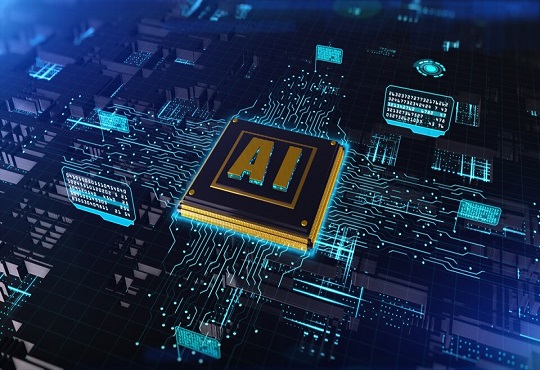
Samsung to Shift from Silicon to Advanced Glass Tech for Devices
CIOTech Outlook Team | Monday, 16 June 2025, 12:58 IST

- Samsung is developing glass substrates for AI chip packaging by 2028.
- Glass interposers offer better performance and cost efficiency than silicon.
- Smaller panel prototypes (under 100×100mm) set Samsung apart from rivals.
Samsung Electronics is making notable progress in semiconductor technology by creating a new glass substrate intended to improve advanced semiconductor packaging. This groundbreaking method, expected to launch by 2028, aims to satisfy the rising need for AI chips. Choosing glass over conventional silicon, Samsung seeks to reduce production expenses while enhancing performance.
The firm is presently developing smaller panel prototypes, a step that showcases its goal to be a leader in this developing technology.
As per an industry source, Samsung is ramping up its initiatives to develop prototypes that employ glass substrates for interposers in AI chips. Conventional semiconductor designs utilize a 2.5D packaging configuration, placing high-bandwidth memory (HBM) surrounding the GPU, linked by a silicon interposer. Conversely, glass interposers enable a more sophisticated 3D arrangement of chiplets integrated within the substrate, alongside extra chiplets stacked on top.
Though using glass may cause a minor rise in temperatures, it provides multiple benefits, such as improved surface area, better signal integrity, energy efficiency, and thermal control. The considerable production expenses linked to silicon interposers have led producers to investigate glass as a feasible substitute. In contrast to rivals such as Intel or AppSolix that employ larger 510×510mm glass panels, Samsung emphasizes smaller units that are less than 100×100mm.
Also Read: AMD Launches AI Server as OpenAI Adopts Latest AI Chips
The shift to glass substrates for semiconductor production could have significant ramifications on the AI chip industry. As AI technology becomes more in demand, the ability to produce chips that are more efficient and cheaper will become increasingly important. The transition to using glass interposers could allow manufacturers to make more sophisticated AI chips that are capable of doing complex calculations and data processing functions more efficiently.
Furthermore, new developments in glass substrate technology may pave a new path in semiconductor design towards more performance and efficiency, which may ultimately benefit many industries such as consumer electronics, automotive, and healthcare, as AI applications become more pervasive among industries.
The transition to glass substrates for semiconductor production represents the threshold to which two innovators, namely Samsung and TSMC, are changing the landscape of the semiconductor industry by virtue of glass substrates being the future of AI chip technology.
CIO Viewpoint
Why Foolproof Facial Recognition Is Key Against...
By Joseph Sudheer Thumma, Global CEO & MD, Magellanic Cloud
National Technology Day 2025: Powering Progress...
By CIOTech Outlook Team
Aligning IT Roadmap with Business Objectives: A...
By Subhash singh Punjabi, CISO & Head Enterprise Architecture, Deepak Fertilisers & Petrochemicals Corporation Ltd
CXO Insights
Making the Business Case for Managed Print
By Rob Ince, Senior Director, Managed Print Services, ITsavvy
Managed Print Services: Your Secret Defense...
By Tim O'Shea, Director MPS Operations & Business Development, Oki Data Americas, Inc.
You Can Reduce Your Print Outs, but You Still...







